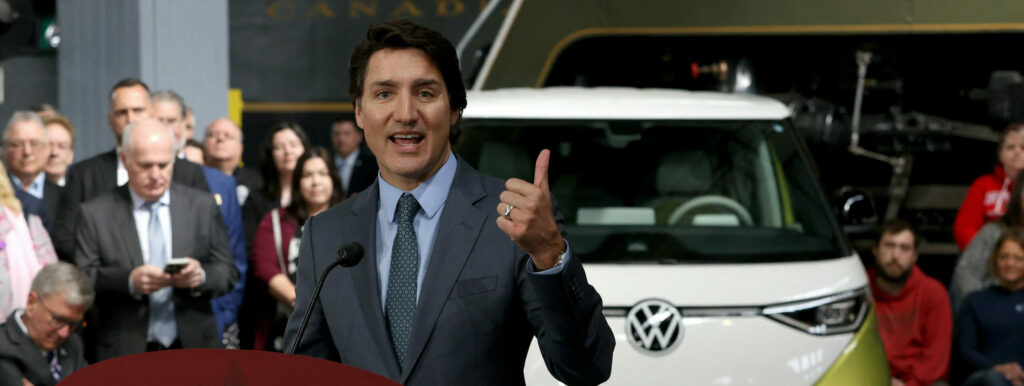This question of how people know things, or why they think they know them, deserves careful attention and not just by philosophers who tumble into wells while gazing at the stars wondering “How do I know I have legs?”. As Lorrie Goldstein said of the Canadian Environment Commissioner’s latest scathing report: “Among his findings: The feds don’t know the extent to which their greenhouse gas regulations are actually reducing emissions because they only calculate total emissions based on computer modelling.” Oh really? All those numbers that get thrown around, and at the government when it misses its targets, are not based on real-world measurements at all? No one’s actually measuring how much CO2 is burbling out of Canada and, of that amount, how much is people’s fault? It matters, doesn’t it? Not to our environment minister, who blathered “We won’t stop fighting climate change while we figure out reporting methodologies. We are moving full steam ahead with an ambitious climate plan.” But outside the suffocating world of computer models and press releases it’s extremely important that they don’t know what their plan is doing, or why, or what it might do next, or how to fix it, or any of that tedious bourgeois rubbish.
So does this “told-you-so”: one of us wrote a column in the Ottawa Citizen so long ago you can’t find it online (or if you can, send me a link please), on September 4, 2002, saying the Canadian government could not meet its Kyoto commitments or really even try because it had no idea where the emissions were coming from or in what amounts. Even if planners have a lot of information, as Leonard Read explained with brief lucidity in “I, Pencil” and Friedrich Hayek with ponderous thoroughness in The Road to Serfdom, their capacity to shape an economy and a society is far smaller than we assume because their capacity to process that information, no matter how powerful their computers, is far more limited than we assume. But surely if they know nothing it’s obvious that their schemes will fail. And on GHGs, they do.
In the words of that 2002 column:
“How do we know what Canada’s emissions were in 1990, or are now? We don’t. This newspaper alone has given figures of 682, 726, 694 and 705 megatonnes in stories over the past three years, while economist William Watson implied this spring it’s now 768.”
Naturally such concerns were written off by the smart set as malevolent nitpicking. But they weren’t. That column also said for a real GHG control mechanism:
“Theoretically you’d need point-source measurements because unlike, say, sulphur dioxide, the main GHGs are also produced naturally, in quantities that dwarf human output. Think someone measured the output of fumes from every factory, gas lawnmower and forest fire in Canada? Hoo hah. They made wildly heroic assumptions. Also wildly inaccurate. We now know that hydro power, ostensibly GHG-free, generates lots of methane from rotting vegetation trapped by dams and that methane is a far worse greenhouse baddie than carbon dioxide.”
And there was more imprecision, because we don’t know how much worse:
“Environmental reporter Greg Easterbrook says about 30 times; the Globe and Mail two years ago quoted New Scientist that it’s 20 times. But even if you could monitor and reduce methane from dams, if you don’t know whether it’s cost-efficient to trade off one kilo of it against 30, or just 20, kilos of CO2, you’ll close lots of fossil-fuel power plants and build hydro ones at huge cost but possibly no reduction or even an increase in GHGs.”
Not that it was the only obstacle. But it was enough:
“you just can’t put hundreds of millions of monitors around the country to track all the CO2, CH4 and other bugbears. Imagine the energy cost of manufacturing, placing and servicing a monitor on every barbecue, chimney and car. And what about factory-farmed cattle, a major source of methane? Do you monitor them? And how?”
Well, you make it up in a computer, just like you made up the impact of CO2 on temperature. And then you discarded the messy real world for your imaginary Minecraft one, all blocky, oversimplified, and of no actual relevance to anything practical:
“In the end, you’d get an immensely costly rearrangement of our economic life to comply with paper requirements that are a pitifully poor proxy for the problem we’re trying to solve. True, some other regulatory schemes work equally badly, but the cost here would be so high the public would revolt.”
Gosh. Ya think? And if one of us understood it 20 years ago, and knew why it mattered, why are all the smart people continually stumbling over it, banging their heads and going “dawk”?



What a beautifully written letter. Prescient and smart. Right then and more so today. Well done. Now if we could find someone to read it again. And btw, how did the Canadian government become so infected with this neo Marxist nonsense (see James Lindsay’s recent address to EU parliament).
What happened to the Lie too Big to Fail, and the liars that lie?
They are reelected.
The "smart people" are impressively stupid. And cowardly. They go with the herd. They absorb by osmosis what is accepted in polite, upwardly mobile company, and assume it must be true. How could all of the people I respect be wrong? Conformity was adaptive in a world of primitive clans jockeying for territory; we go back to that mode of reaching consensus in times of stress.